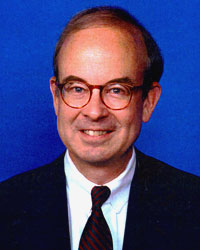Boucher's route to network neutrality may run through the Judiciary Committee


In answer to a question from Visicalc co-founder Bob Frankston, Boucher called the AT&T plan "an effort on the part of the telephone companies to extend their market power from transport into content. Under antitrust principles this is suspicious."
First, however, Boucher will offer an amendment tomorrow that would put the four principles of network neutrality offered by former FCC chairman Michael Powell into law, and give the FCC authority to set rules on it.
"What the bill before us gives the FCC is statutory authority to have a complaint process. The FCC could issue orders. That’s a step forward. There is no authority for a rulemaking, however, so the commission could not elaborate on these principles."
Boucher said this was stimulated by the Madison River case (PDF warning), where a small phone company tried to cut access to Vonage for its ISP customers. Powell convinced the company to sign a consent order stopping the practice, was a watershed. Had the phone company not backed down, Boucher said, the FCC could not have forced the issue.
"Because these principles did not have the force of law the FCC could not enter an order without consent to all parties. What that said in terms of precedent is not much."
Boucher said three other Democrats will join him in the amendment for rule-making authority, and would not predict the outcome. "I think we’ll have some Republican support, which we need. But I think it’s going to be a close vote."
Boucher will also offer an amendment specifically prohibiting Whitacre Tiering. "We’re going to offer an amendment which says that if a telephone company or broadband provider decides to prioritize any content, then they have to offer that same treatment to all content providers without charge. If you create a fast lane everyone must have access to it."
The news here, however, is that even if Boucher fails tomorrow, he will try again.